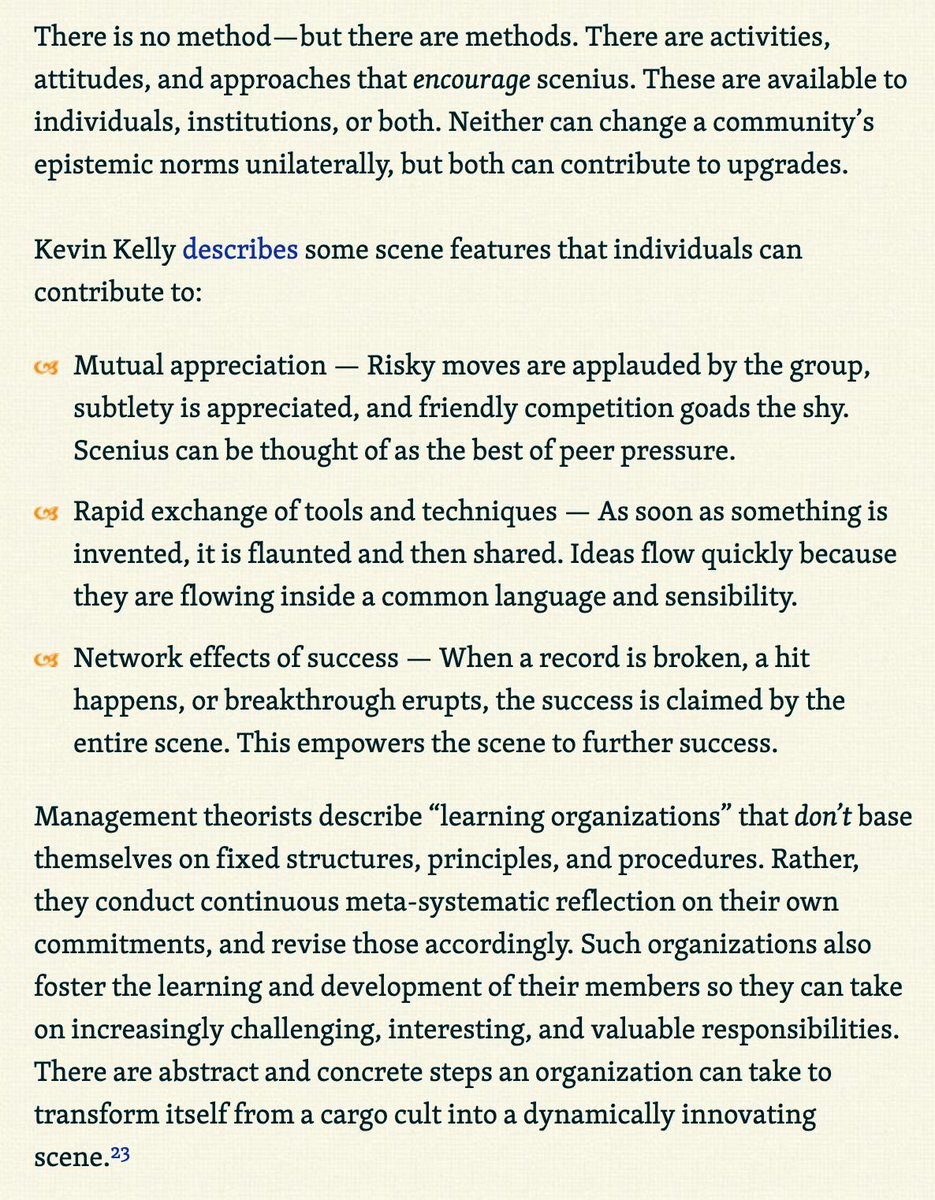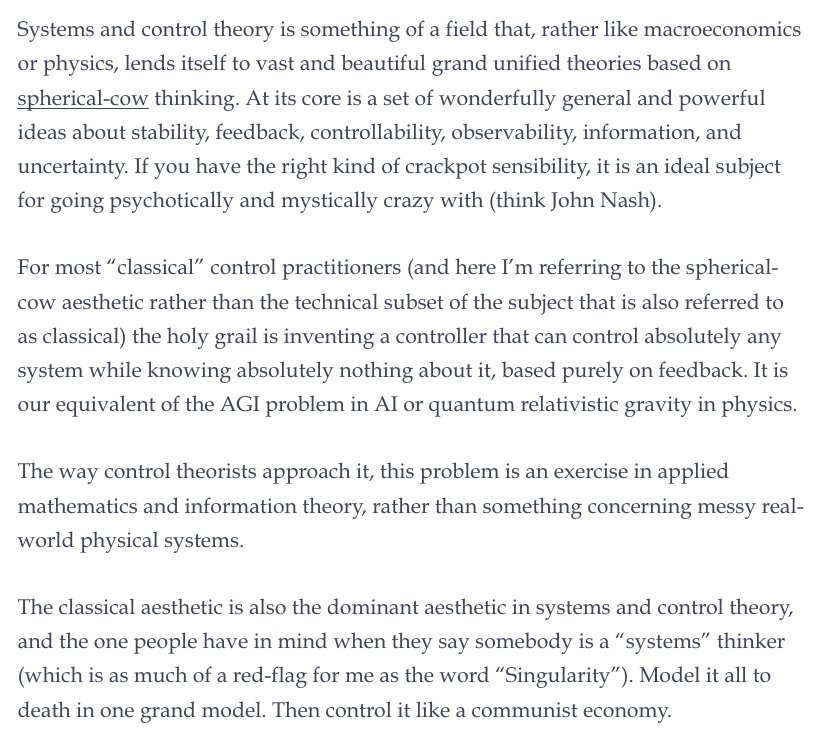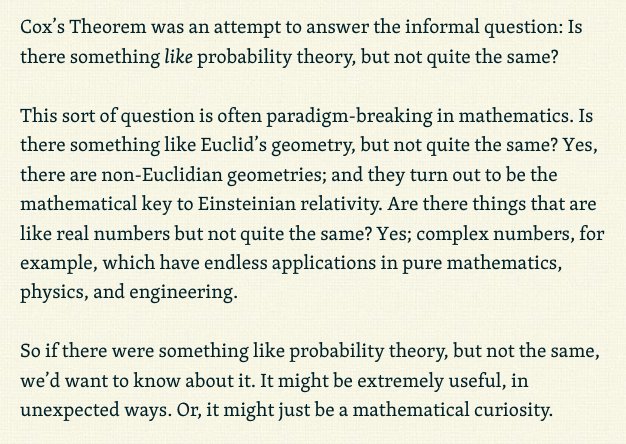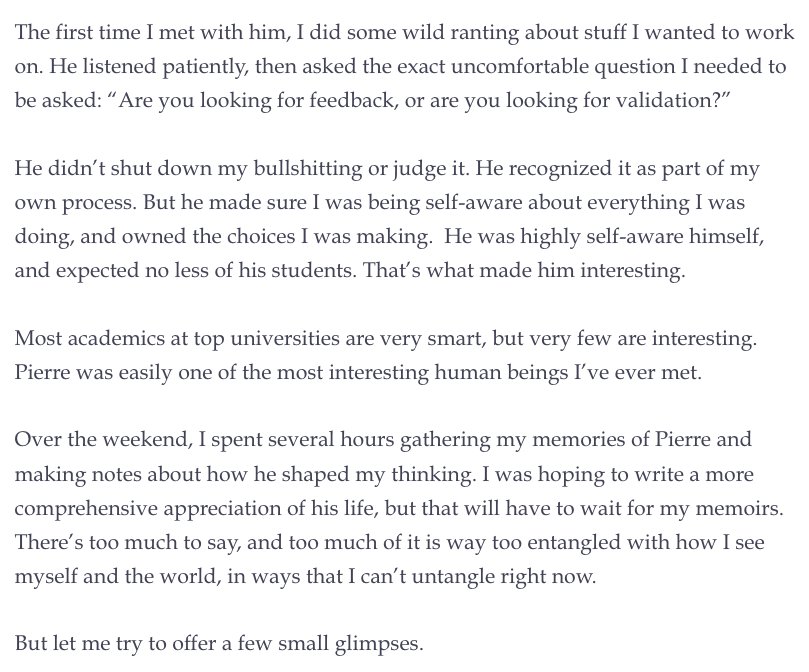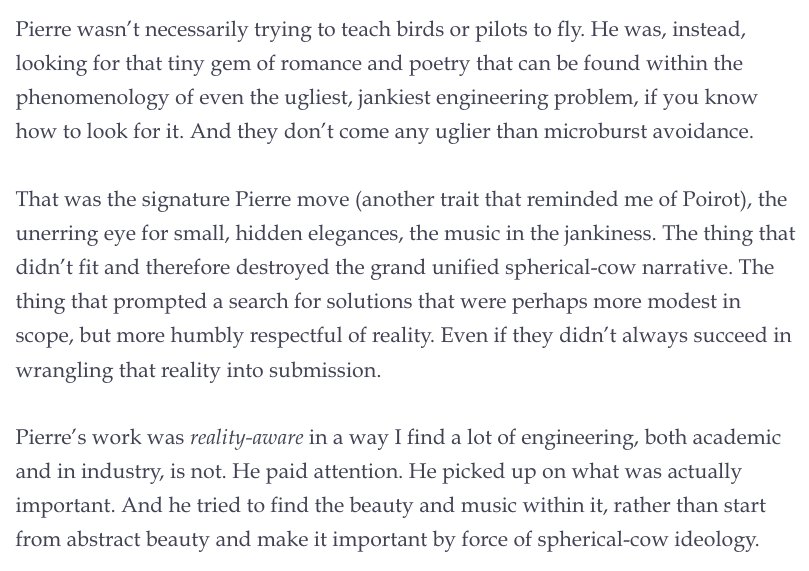His post has a sudden plot twist toward the end, and takes on a darker tone.
[SPOILERS of sorts coming]
meaningness.com/metablog/how-t…
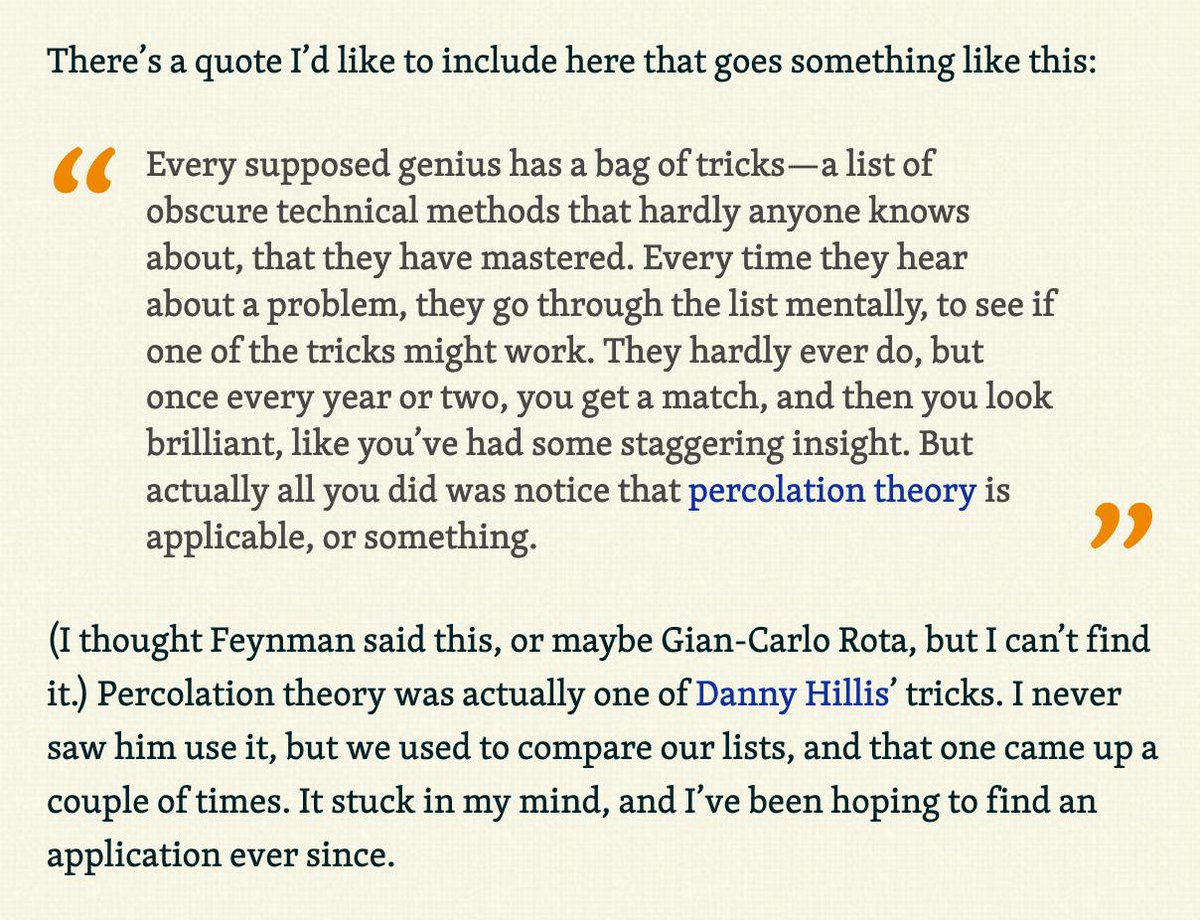
meaningness.com/metablog/upgra…
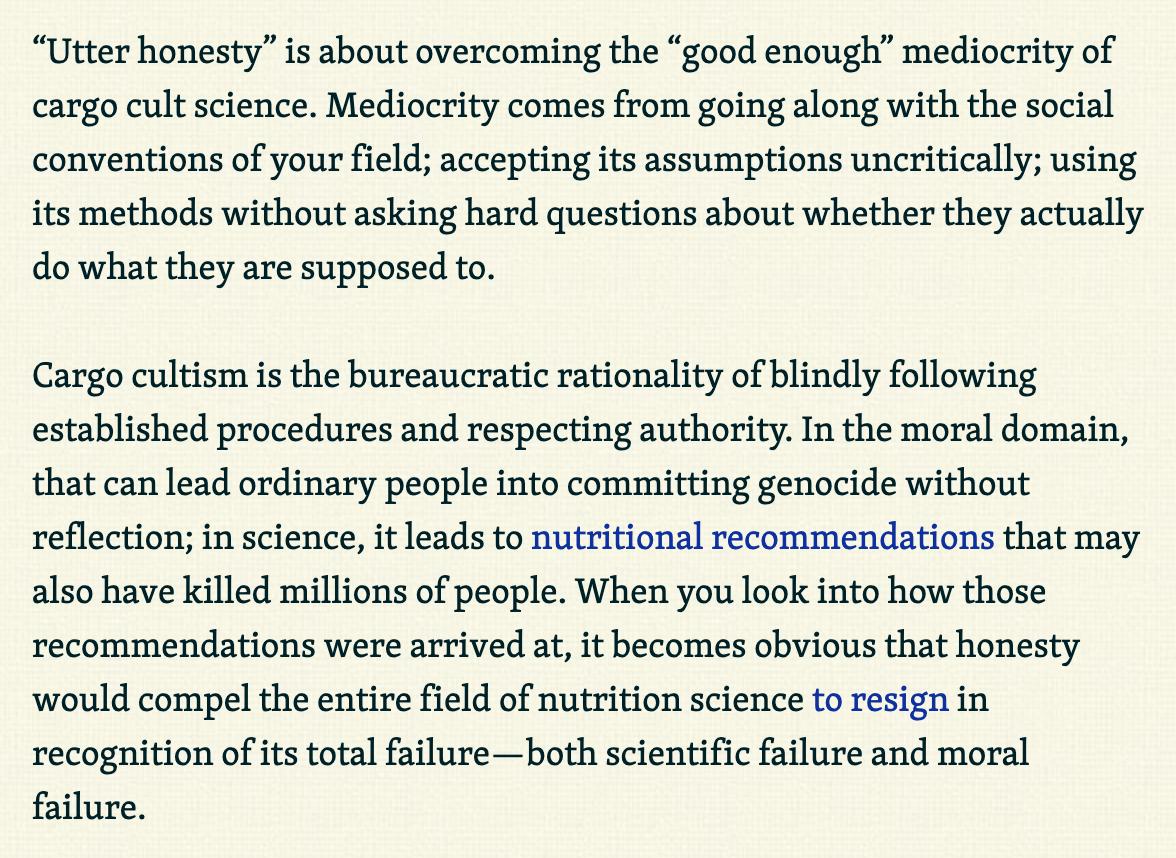
Unfortunately, it’s a terrible career, and one reason we have so much bad science is that many of the people who could best do it choose not to, because they figure that out
As Kevin observes, going-through-the-motions science has crowded out the real thing.
meaningness.com/metablog/upgra…
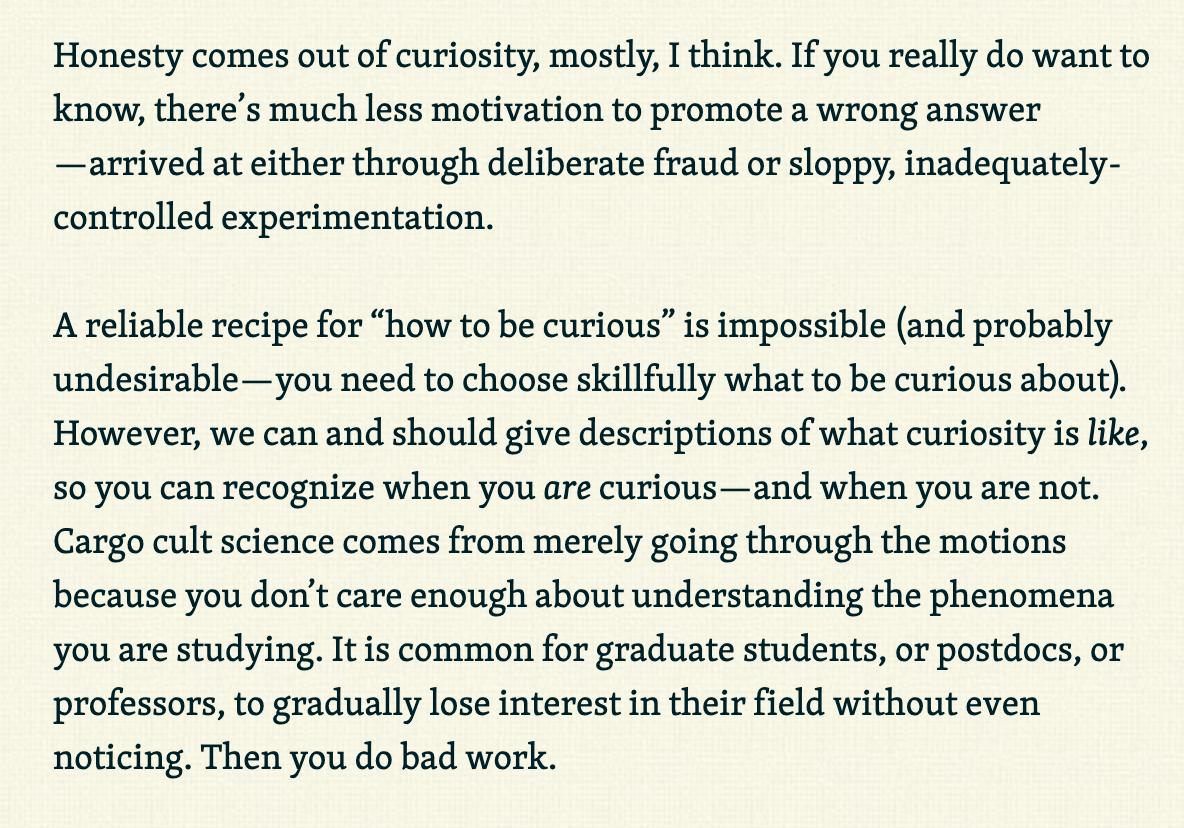
We know something about what creates innovative “scenes.”
And we know something about how institutions can reflect on, and upgrade, their operating principles.
meaningness.com/metablog/upgra…
